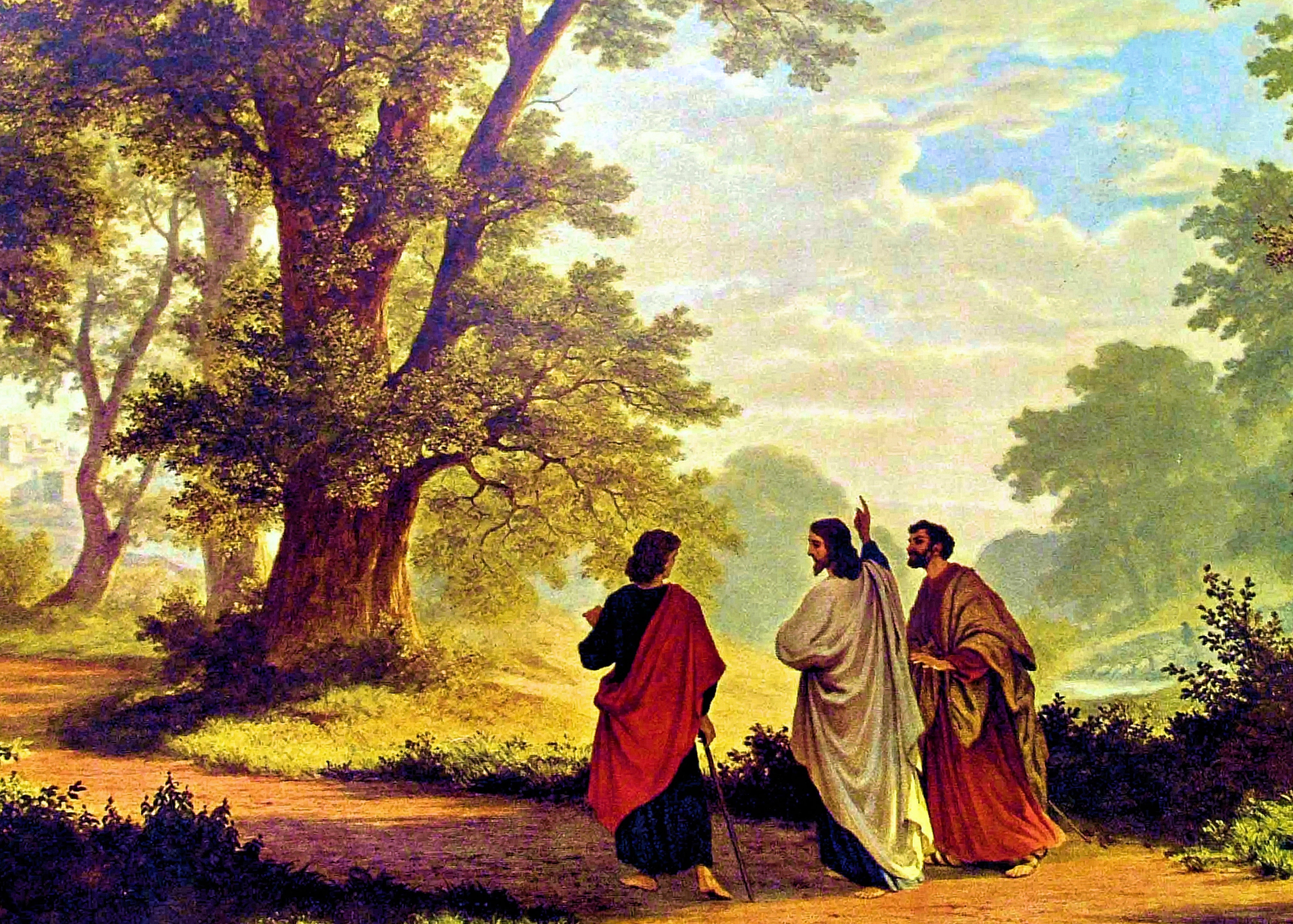The Easter season is a time for rejoicing that Our Lord has shattered the bonds of death through his Resurrection. We celebrate his victory because it is our victory as well. He didn’t just shatter the bonds of death for himself, but for all of us.
St. Peter in today’s First Reading proclaims to the astounded crowds at Pentecost that it was impossible for Christ to be held by the throes of death. Peter makes allusion to David because he is convincing his listeners through giving witness to Christ’s Resurrection that Our Lord is the Messiah. The real conquest of the Messiah is death. When the Lord promised David that one of his descendants would be the Messiah he said that descendant would reign forever (see 2 Samuel 7:12-13: “When your days are fulfilled and you lie down with your fathers, I will raise up your offspring after you, who shall come forth from your body, and I will establish his kingdom. He shall build a house for my name, and I will establish the throne of his kingdom for ever.”). The angel Gabriel told the same announcement to Mary: “He will be great, and will be called the Son of the Most High; and the Lord God will give to him the throne of his father David, and he will reign over the house of Jacob for ever; and of his kingdom there will be no end” (Luke 1:32–33). Our Lord was that descendant of David, the Messiah. It goes without saying that forever is a long time. Dynasties rise and fall, but David’s endures forever in Our Lord’s because it was impossible for Christ to be held by the throes of death: “God raised him up, releasing him from the throes of death.” Peter quotes Psalm 16 and attributes it to David (as the psalms traditionally are) as a prophecy that David knew death would be conquered for him too, through his descendant who would reign forever.
In today’s Second Reading St. Peter reminds us that Our Lord’s blood paid the ransom for our life as well. Through his death and Resurrection the chains of our slavery have been shattered. When Peter speaks of the “futile conduct” handed on by our ancestors he is speaking of sin, including Original Sin, which in some mysterious way spreads to us all and separates us from God. Death came into the world due to sin, and even when we are ignorant of sin, death is a reminder of its presence and its evil. If death had the last world, everything we do in life is futile. Whether our achievements are noble or base, they’d come to nothing. Heaven doesn’t take Visa, MasterCard, or Bitcoin. There’s only one “currency” that grants us eternal life: the blood of Christ. We know that “currency” works because Christ was raised from the dead, and that encourages us to believe and to hope that if we sojourn in a way pleasing to Our Heavenly Father we too will be ransomed from death and our conduct will be worthwhile from here to eternity.
In today’s Gospel Our Lord helps two of his disciples on the road to Emmaus to see that their hopes were misplaced because they didn’t factor in the Resurrection properly. As far as they were concerned, Our Lord was dead. The Messiah was supposed to live forever, but he was dead, so Jesus was just another prophet. There’s a subtle difference between the vocation of the Messiah and the vocation of the prophet: the prophets spoke on behalf of God and performed signs to back it up, but, ultimately, they were rejected and killed. In the disciples’ mind, Jesus fit that pattern perfectly, as events revealed. The Messiah would redeem Israel, and, apparently, Jesus didn’t do it: “…we were hoping that he would be the one to redeem Israel…” Yet they had some facts that they didn’t know how to process: women announcing that angels had announced that Jesus was alive, but their buddies finding only an empty tomb. Our Lord, with all the pastoral tact merited by the case replies, in so many words, “Duh!” He called them foolish and slow of heart to believe all that the prophets had spoken. He helped them connect the dots. The clincher was when he revealed who he was to them. They only saw a glimpse of him before he vanished, but that was enough. They ran back to their buddies to share the news and found out they’d had a visit too.
The world today is plagued by people who do not have someone in their life who cares enough about them to tell them “Duh!” once in a while when they’re being foolish. We’re so steeped in a relativistic culture and mindset that no one wants to impose his or her view on someone else, yet when someone is walking off a cliff, figuratively or literally, relativism goes right out the window. Every Christian must admit that Jesus’ response to the disbelief and dashed hopes of the disciples on the road to Emmaus could have easily been said to any one of us when our faith and hope start to wane: “Oh, how foolish you are! How slow of heart to believe all that the prophets spoke!” Let’s go to Christ in prayer this week and tell Our Lord, “Lord, I am ready for my ‘Duh!’ moment. Tell me what I need to hear. Turn me away from the cliff.”
Readings: Acts 2:14, 22–33; Psalm 16:1–2, 5, 7–11; 1 Peter 1:17–21; Luke 24:13–35.

